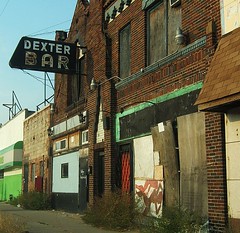Normally I prefer to NOT talk about the US elections. I’m not very impressed or excited by the actions and promises of either candidate of the 2 parties that share control of the country.? Sure Obama says things I like better than the things that McCain says. But that doesn’t automatically mean I’m satisfied or impressed.
 One of the big issues for me is poverty.? Gone is the one candidate who at least spoke the words “the poor” in his speeches and proposed policies (John Edwards), the remaining 2 candidates call everyone working families or hard working Americans, little buzz phrases that are just vague enough to make everyone think this candidate is speaking for them.?? Meanwhile poverty in the US is on the increase, and also alarming, the wealthy class is more wealthy than ever in history and that gap between the two is wider then ever.? A fact that opens the door to many social, financial, and political problems.. yet there is little action or demand to put a stop to it.? (yes yes, both candidates mention their concern for CEO’s making so much money, I’m aware of that)
One of the big issues for me is poverty.? Gone is the one candidate who at least spoke the words “the poor” in his speeches and proposed policies (John Edwards), the remaining 2 candidates call everyone working families or hard working Americans, little buzz phrases that are just vague enough to make everyone think this candidate is speaking for them.?? Meanwhile poverty in the US is on the increase, and also alarming, the wealthy class is more wealthy than ever in history and that gap between the two is wider then ever.? A fact that opens the door to many social, financial, and political problems.. yet there is little action or demand to put a stop to it.? (yes yes, both candidates mention their concern for CEO’s making so much money, I’m aware of that)
All this to bring me to my big recommendation of the day; the latest edition of Radio Open Source, where Chris interviews Chuck Collins.? While I’ve never heard of Chuck Collins, who is a specialist in the areas of US incomes, property, and economics, I found myself rewinding various segments to listen again.
You’ve heard it said before, though rarely do leaders or corporate media investigate it, the inequality boom in the United States is dangerous.? I highly recommend listening to this interview and soaking it in, it is the kind of critical thinking that we should be pummeling these candidates with.. obligating them to not just make the occasional lament, but to lay out a serious point by point plan for turning the tide and making it politically and hopefully cuturally a priority to preserve opportunity and keep the playing field of life and work from becoming an out of control thunderdome.
